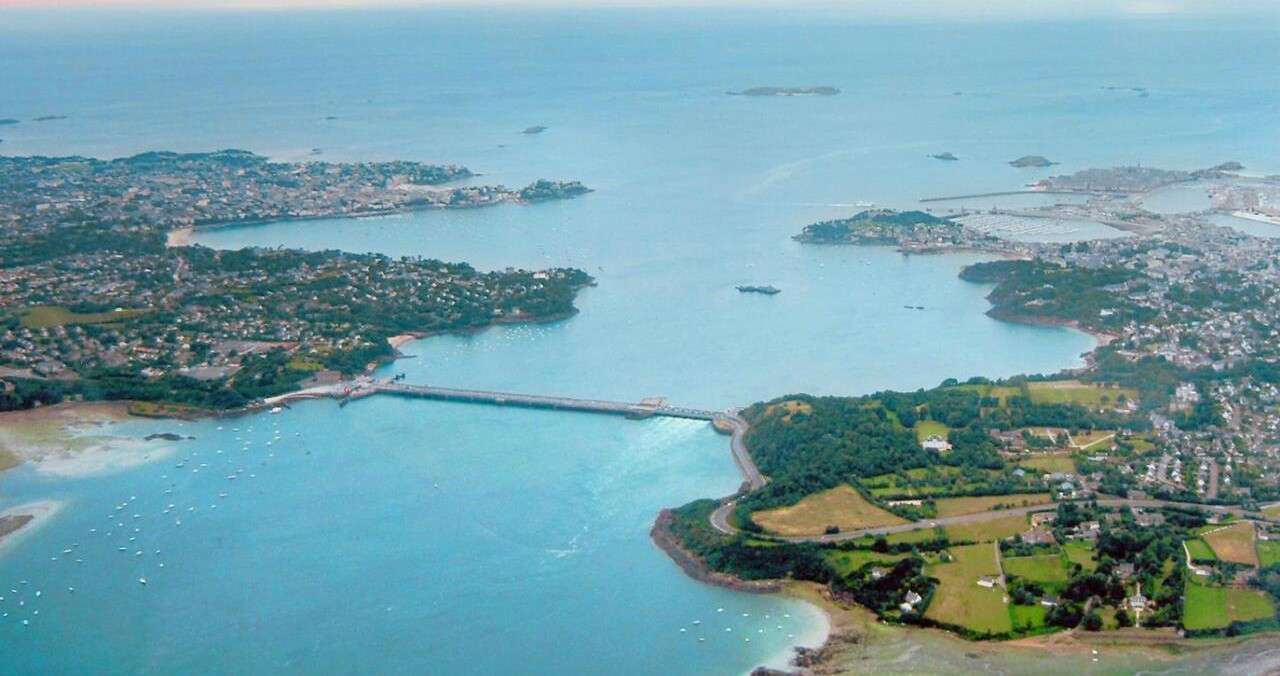Reborn from the Dust, Giant Statue of Atlas Put Back Together to Guard Sicily's Valley of the Temples
The 38 Atlases were frozen in sandstone between the large Doric columns in the act of holding up a massive roof that was never built.

The River Mersey and the Bay of Liverpool are the largest assets this famous English city possesses, and attempting to beat the British government to a net-zero economy, Liverpool City Region have entered phase 3 planning stage to build the largest tidal power plant on Earth.
Schemes to harness the predictable power of the tides in Liverpool Bay date back to 1924, and with one of the largest tidal ranges of any coastal city in the UK, government utility Mersey Tidal Power believe that they can power 1 million homes and protect the city from floodwaters, all without disturbing the local estuarine ecosystem.
Mersey Tidal Power have released precious little information on the plans thus far, but Eletrek reports that a large dam would be a barrier between the Irish Sea and a tidal basin. Underneath the dam would be large turbines and sluice gates which would open as the tide comes in, pulling water onto the turbines to generate energy.
The gates would close as the 10-meter-high tide finishes, and as the gravity of the moon begins to pull on the water four hours later, the gates would open, causing it to rush past the turbines a second time, generating more clean energy.
"I think that we have a unique opportunity to harness the power of our greatest natural assets-our river and our people-to deliver a cleaner, greener, more prosperous future for our children," said Liverpool mayor Steve Rotherham.
Tidal power projects are few and far between in both scale and reliability, but like geothermal power, they offer an alternative to sun and wind power which can be interrupted by weather conditions.
The multibillion-dollar project is in Phase 3 concept development and is about to enter the formal planning stage. Mersey Tidal Power has consulted with experts at the Rance tidal power plant in France, in operation since the 1960s, as well as K Power, which runs the largest tidal plant in the world at Sihwa Lake in South Korea.
Concept imagery from Liverpool City Region Combined Authority shows a similar design to the installation at Rance. The top of the dam would serve as a causeway with green spaces and bike paths that would connect the city of Liverpool to the Wirral Peninsula, the way Rance is connected to St. Malo.
Liverpool City and Mersey Tidal Power are under no illusions as to the complexity and challenge of the project, but they estimate that the capacity of a River Mersey Tidal station could power 1 million homes-essentially the whole of Liverpool-for 120 years.
WATCH a promotional video that's short on details below…
SHARE This Inspiring And Enterprising Project For The Future…
Be the first to comment